|
We are pleased to present our first flashglass anthology! Comprised of all flash works originally published online at rowanglassworks.org in 2015, this anthology is available for online viewing, digital download, and for purchase in print.
Thanks to all our contributors for allowing us to present their work this year!
0 Comments
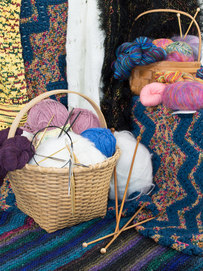 I was a one-woman witness to your parade. The yarn shop was empty when you arrived with eight kids. You were the first customer, just past noon. You nodded hello but turned to the six girls and two boys, the oldest maybe 12, the youngest maybe 4. With a voice that braided patience and prompting with promise, you stated rules. Older children take the hand of a younger. Do not touch. Follow me. Such obedient children. Long dresses, the boys in practical cloth pants and button-up shirts. Braids and bowl cuts. Were you Amish, or Mennonite, or Mormon? I did not know and could not ask. You walked past mohair puffing out of a basket. Sweater wool cubbied by color. Silk looped and twisted like pastry to pick up off a glass shelf. My job was to display yarn so you could touch it. Touch is creativity, an idea, and the beginning of the self and possession. I did not think the children would follow your rules. I was born with the bloodlines of touch. My parents owned a greenhouse. Fingers in dirt and moss, palms on thorns and blossoms, arms pressing terracotta. For so long I thought all parents owned stores and all kids could within them do as they pleased. The children followed you down every aisle, touching nothing, saying nothing, a stunning success of proper behavior. But then the real test. The store’s mascot, a grey Maine coon cat, asleep on the couch. Her name was Blanche, like one of the Golden Girls. That cat was meant to be petted. You were supposed to choose a ball of baby alpaca yarn, infant blue, and sit with Blanche to browse patterns from the three binders. You were supposed to slide your fingers through Blanche’s long striped fur, her ruffly white chest, even brush the tufts on her ears and decide to buy a little extra yarn, just in case, plus this one extra pattern, and why not let all the girls pick out cotton for crafts, and Blanche would chirp her meow and stretch out her ridiculous fox tail, which you, all of you, could pet. None of this happened. No one petted the cat, for the first time in the history of the yarn store. At the door, you praised the children for listening. You turned to me and said thank you, it’s a lovely store, perhaps we will be back. Perhaps you never left, because I remember you so clearly now. I remember how your children grew up to listen and to respect, like those rules were longer bones in their hands, faster springs in their steps, tighter weaves in their worlds. I hope they also grew up to touch something decadent, something useless, and something luxurious, even though I admit there are days now when I wish you would stop me at the door, lay down the rules, and say, “follow me.”
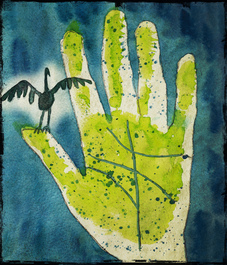 When I got home from the deaf-blind convention, I couldn’t stop touching people. It was a week of haptics, tactile sign language and fingerspelling, touching and being touched, and it just naturally continued flowing out of me. I found myself patting the hand of the policeman as he leaned into my car window to give me the speeding violation: Thank you, officer. And I couldn’t help stroking the arm of the bank representative when I stopped in to make a payment on my home equity loan: Principle only, please. And later, in line at the grocery store, I brushed a piece of lint off the sweater of the woman in front of me, pressing her shoulder reassuringly. When she turned around, startled by my touch, I touched her again, on the elbow, to apologize. Which only made it worse. People are touchy about being touched. They don’t like it. They misconstrue it. They take it as an advance: a pass or a flirtation, an aggression or an invasion. But not so with deaf-blind people. For deaf-blind people touch is everything. It’s communication and information. It’s intonation. It’s affirmation, feedback, backchanneling. It’s connection and community. It’s practically sacrament and yet it’s as natural and necessary as breathing. All week I had brushed up against and been brushed up against, gently bumping, gingerly jostling, signing and spelling into hands, printing on palms, scratching and tapping, sketching and mapping on backs, shoulders, knees, interpreting and chitchatting as my fingers and hands remained in almost constant contact with the fingers and hands and bodies of others. The deaf-blind world is a different world altogether. A world of physical contact. And already I found myself missing it terribly. In fact, I seemed to be going through a kind of withdrawal. I felt separated, isolated, untouchable in a world of untouchables. It felt like there was too much space between me and the world, too much space between people and things, too much space between people and people. I felt depressed. I began to self-medicate: I started touching myself. Not in a sexual way, but a platonic way, a deaf-blind way. My hands looked for each other; they touched each other and themselves, folding, tenting, twiddling, praying. And I touched my face - my temple, forehead, nose, cheeks, lips, philtrum, chin. My neck, head, crown, shoulders, arms, wrists, thighs, knees. I touched myself and I thought of my deaf-blind friends at the convention, whom I longed to see again, whom I longed to touch. But the next convention wasn’t for another two years. Especially I missed Adriana. Her slender, beautiful hands, the weightlessness of them as they rested on mine, listening. It wasn’t exactly romantic; it was more semantic: her nimble fingers, her fluent signing, the grammar of her face, her virtuosic receptive skills - it was all about language. I was seduced by the voluptuousness of tactile sign language. She was my deaf-blind delegate from NY, and I was her SSP (Support Service Provider). I guided her, assisted her, interpreted for her, clued her in and helped her out by touching her constantly, but only on her hands, occasionally on her back, or her arm, or the little atoll of her knee. “Those are the only permissible places,” the Pro-Tactile instructor told us during the short training session on haptics for interpreters and SSPs the first day of the convention. “To tell the deaf-blind person that someone is laughing, for example, you can spell HA-HA in her hands, of course, but if her hands are occupied, for whatever reason, then you can indicate it like this on her arm, or her back, or if you’re both seated, on her knee.” Then he did a little sort of double flex-scratch with all five fingers in the air, by way of illustration. “Nothing above the knee, though; and never on the head, or stomach, or chest, or butt, or breasts. Unless, of course, invited to, in the privacy of your dorm rooms.” There were some giggles. I have to say, those first few days at the convention, a part of me hoped I’d be invited to. And sometimes it seemed like I was on the verge of being invited to. But the invitation never came. And in a way, I’m glad it didn’t. Because it wasn’t about sex. It was so not about sex. And between you and me, some of us never grow wholly comfortable doing it, now do we? I mean doesn’t it feel a little like the blind signing their names on the signature line? I mean don’t we often need a hand to guide our hand to where they say the ultimate expression of who we are ought to be? And then when it’s done, it’s as though our lovers take back the pen, and the paper, eyeing the sad mark that is ours, and wondering what in the world the world should make of such a squirming, illegible thing.  Paul Hostovsky's latest book of poems is The Bad Guys (FutureCycle 2015). He is the author of seven books of poetry and six poetry chapbooks. His poems have won a Pushcart Prize and two Best of the Net awards. He has been featured on Poetry Daily, Verse Daily, and the Writer's Almanac. He makes his living in Boston as a sign language interpreter. To read more of his work, visit him at www.paulhostovsky.com. 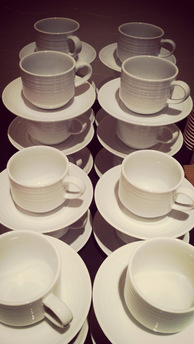 Fifty years ago, it was the smell of warm sweet dough fried up and made throughout the day that brought lines of people in to this small chain of New England coffee shops. While waiting in line you could glimpse the back room and watch dough being mixed in silver vats, then placed onto trays to be shaped, frosted and decorated. If lucky, your favorite variety will have just run out with a warm, steamy batch quickly on its way. Now the sugary deep fried carbs, all grease and glaze are packaged in a factory in a limited amount and shipped in each morning lasting only until they are sold out. But the pink and orange styrofoam cups of Dunkin’ Donuts coffee, watery and weak but oddly still good are worth a trip in once in a while. By mid day there are no long lines in this small town coffee shop, only scattered patrons running in and out and maybe a few people under florescent lights sitting quietly in a white, sterile emptiness. The workers keep the smell of anti bacterial cleanser wafting from the floor and tables by regular cleaning throughout the day in this 2014 FDA approved iconic chain and where there remains a kind of packaged nostalgia. The DD logo appears on billboards, TV, at sports events, its counters found under bright lights at train stations and airports, tucked away in the back of late night convenient stores. It has become a big business and has grown its presence across continents and oceans, staying current decade after decade, coffee and donuts, plus… the familiar colors flash. And still alive, the memory of crowded tables, counter and stools, Sunday mornings and families after church, a dozen donuts, the parking lot filled, teens, motorcycles and Hell’s Angels, a cup of coffee for 60 cents, a cardboard sign with a hand held out, the weekday rush of businessmen and woman, policemen and workers on break, busy and well lit late nights. And retired old men sitting at the counter with an endless cup of coffee poured into a real mug. No one noticed the cigarette butts dropped on the floor, half swept up but still scattered under their feet. Or all the cigarettes in hand with smoke trailing up, mixing with the smell of hot coffee and fresh donuts made ‘round the clock.’ My husband and I pull into the strip mall to get a cup of coffee. It is one of those late, blank afternoons that seem to come at the end of summer, no longer linear but laying on its back, as if time were trying to stand still for a moment. Around the back of the building next to the dumpster, there is a worker on break wearing a hooded sweatshirt. I watch him as he flicks his cigarette and enters the donut shop.  Denise Mostacci Sklar has had a career as a dancer and now has had the good fortune to discover writing as another way to move through life. She also has the good fortune to study with poet/teacher Marc Olmsted. She has been published in numerous journals including the Aurorean, On the Rusk, Ibbetson Street Press, Wilderness House Literary Review, Gravel, Similar Peaks, Damfino, and Poesy. Denise is from Hamilton, Massachusetts where she lives with her husband and two incredible sons. A bearded man in ski boots watches me as he sips his orange juice and I wish I could drink like that. All that sugar first thing in the morning. He seems sad in that way that bearded men sometimes do when they are trying to pick up women. The waitress asks what brought me here and I see him look at me again, turn his head so that he can half listen to his friend, half hear my story. He seems to like it — Au pair... Australian family here on holiday...flew me out to visit. I wonder what I might say to a man like him if he hobbles over in his space suit. Sorry sir, I’ve got a man of my own back home. I picture his life -- pushing down a french press alone in some cabin in the woods, humming with a voice like an indie musician because all bearded, lonely men sound like indie musicians — as I cut into my toast with the edge of the fork, pull it through some eggs, hold a book open in my left hand and wonder about the way people meet. If it is ever as romantic as he is wishing this could be. He hears me order another latte and tells the waitress it’s on him. He smiles. I smile. He asks if I mind if he sits, I say of course not. He asks me my name, where I’m from. I ask him the same. Suddenly it’s hours later and he’s asked for my phone number and we begin a long distance romance. He spins me around in his kitchen on the weekends, I take him on long walks, we fall in love with each other’s friends. He ties a piece of string around my finger and a ring appears, dangling in the air above a white down comforter. People only meet this way in movies. In reality it’s work, school, sneaking away to kiss by the refrigerator when their friends aren’t looking. They fall in love fast and out faster. They are constantly apologizing for getting too drunk, for not saying good night in the right tone. For driving other women home from bars. This man thinks that because I am twenty-something, and alone, drinking coffee and eating raspberry jam on the last bit of my toast that I am different. He thinks that he is different and that he deserves me. I think that I am an asshole for this imagined dialogue. The way that I pretend to read while I am really practicing what I will say to him if he comes over here, how I will prove that life is not an independent film. But as he stands and tips the glass and empties the last of the orange juice into his mouth, and stares at me for a good long beat before he nods at me in that bearded, lonely man kind of way, picks up his yellow tinted goggles and his gloves and walks away, turning as he goes to look hard at me one last time and show his white teeth through the red web, I realize this is an independent film. The kind you have to watch over, and over, before you truly understand.  Kate Peterson earned her MFA in poetry from Eastern Washington University in Spokane, where she lives and works as an adjunct professor. Her poems have been published in Medical Literary Messenger, Barnstorm, and Eat This Poem, among others. She has poetry forthcoming in The Examined Life Journal and The Sierra Nevada Review. Her feeble attempt at a website can be found here. |
FLASH GLASS: A MONTHLY PUBLICATION OF FLASH FICTION, PROSE POETRY, & MICRO ESSAYSCategories
All
Cover Image: "Spots"
|
|
Glassworks is a publication of Rowan University's Master of Arts in Writing 260 Victoria Street • Glassboro, New Jersey 08028 [email protected] |
All Content on this Site (c) 2024 Glassworks
|

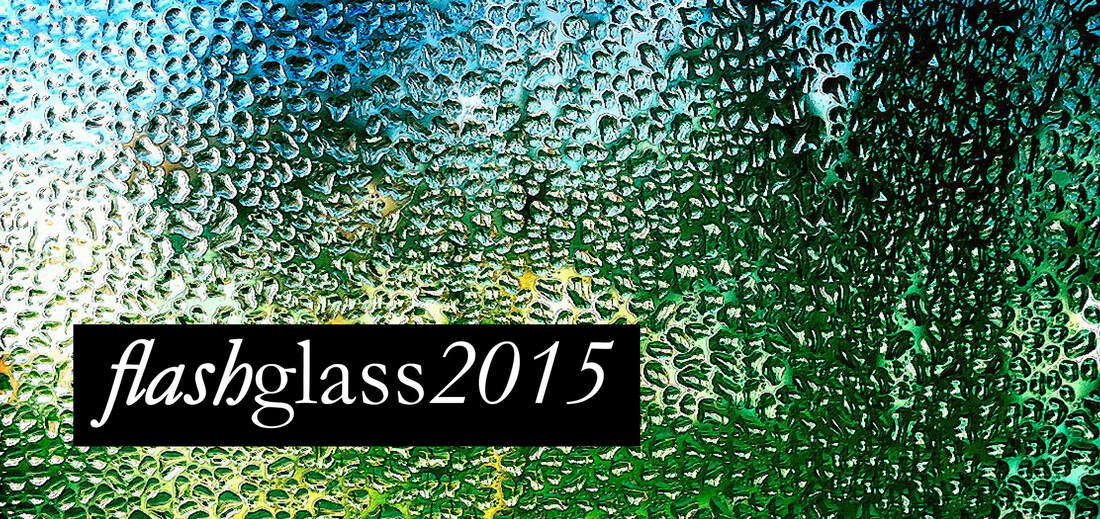


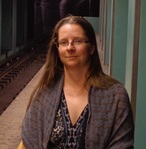
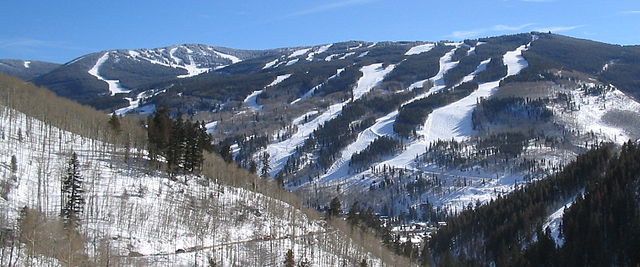
 RSS Feed
RSS Feed
